Panels
Quantum computing aspects of artificial intelligence
Quantum computing is a rapidly developing area of research and engineering aiming at applying the quantum mechanical effects for the purpose of performing computation. Quantum computers work in a fundamentally different way than their classical counterparts and are very likely to be more powerful in some areas of applications. Currently existing quantum computers have very limited capabilities due to imperfections in their implementations. Yet multiple companies invest heavily in their development and a steady progres in the quality of quantum computing platforms can be observed. The cross-section of the fields of artificial intelligence and quantum computing has become its own field of research that is being called quantum artificial intelligence. Two main areas of this field are quantum machine learning and quantum optimization. Quantum machine learning aims at, among others, to apply quantum computers for the purpose of e.g. data classification and quantum optimization deals mainly with combinatorial optimization problems based on so-called Ising models. It is not yet proven that quantum techniques in the artificial intelligence will be of any practical use but a constant stream of new research results allows to be hopeful. During the panel the current state and prospects of quantum artificial intelligence will be discussed.
Panel moderator

Prof.
John Doe
Miskatonic University
Panelists

Prof.
John Doe
Miskatonic University

Prof.
John Doe
Miskatonic University

Prof.
John Doe
Miskatonic University

Prof.
John Doe
Miskatonic University

Prof.
John Doe
Miskatonic University
Why do we need graduates in the domain of artificial intelligence?
The dynamic development of artificial intelligence opens both new perspectives for its applications and a huge demand for specialists. The industry needs practitioners first and foremost. Is there a need for Masters? The aim of the panel is to discuss the future of education at the second level of studies (MSc) in the field of artificial intelligence. Some results of the AI Tech project will be discussed. As part of the project, modern study programs are offered and special activities are financially supported for graduates including international internships, study visits, participation in conferences, tutoring and other forms. Are such activities sufficient to attract the best students to graduate studies and train future AI scientists, leaders and innovators?
Panel moderator

Prof.
John Doe
Miskatonic University
Panelists

Prof.
John Doe
Miskatonic University

Prof.
John Doe
Miskatonic University

Prof.
John Doe
Miskatonic University

Prof.
John Doe
Miskatonic University
AI trends, challenges and future
AI trends and challenges will be discussed by researchers focused on different hot areas of this scientific field. It is likely that the main threads will be concerned on machine learning, natural language processing, computer vision and robotics, as well as the brain-AI relationships with the question of how far we are from intelligence at the human level. Also, the panelists will question the threats and trust in AI. The discussion on AI must also focus on the prospects of AI applications, including real industrial applications. To sum up, the panelists will try to answer the questions: what is still to be done and do we have a good idea how to do it.
Panel moderator

Prof.
John Doe
Miskatonic University
Panelists

Prof.
John Doe
Miskatonic University

Prof.
John Doe
Miskatonic University

Prof.
John Doe
Miskatonic University

Prof.
John Doe
Miskatonic University

Prof.
John Doe
Miskatonic University

Prof.
John Doe
Miskatonic University

Prof.
John Doe
Miskatonic University

Prof.
John Doe
Miskatonic University

Prof.
John Doe
Miskatonic University

